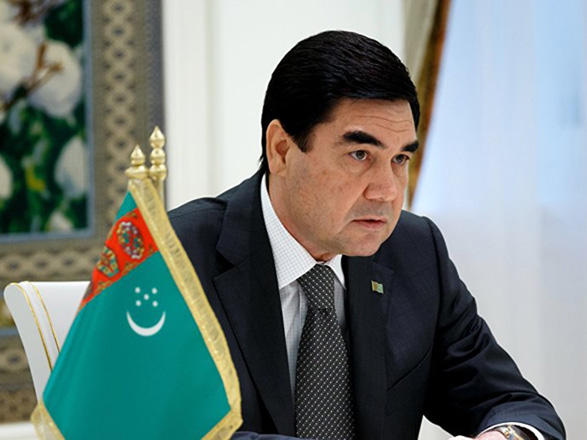
Ashgabat, Turkmenistan, October 1
By Huseyn Hasanov Trend:
The Caspian region may become one of the strategic transport, transit and energy hubs of international importance, President Gurbanguly Berdimuhamedov said in his speech in New York at the 73rd session of the UN General Assembly, the state news agency Turkmen Dovlet Khabarlary (TDKh) reported Sept. 30.
The signing of the Convention on the legal status of the Caspian sea (in Astana) by the heads of the Caspian states on August 12 this year opens the prospect of turning the Caspian region into one of the strategic transport, transit and energy hubs of international importance, a place of big investments, trade, economic activity and cooperation, said the Turkmen president.
Turkmenistan is ready to discuss in detail with all interested parties the aspects of the implementation of projects in these areas, which are economically justified, beneficial for potential participants, can significantly affect the strengthening of continental security and have a long-term nature, the president of Turkmenistan said.
Earlier, the TDKh noted that the signing of the Caspian Convention is a historic step towards global energy security.For example, according to the document, it is possible to lay submarine cables and pipelines along the bottom of the Caspian sea "provided that their designs comply with environmental requirements and standards enshrined in international treaties to which they are parties".
The text of the document also says that only those countries through the sector of the bottom of which the cables and pipelines will be laid, will determine the route of laying of the cables and pipelines.
Some experts believe, this means that the Trans-Caspian gas pipeline an underwater gas pipeline that could deliver Turkmen gas to Azerbaijan and from there - to the markets of Western Europe - can no longer be vetoed.
The relevant negotiations have been conducted since 2011 between the interested parties-the EU, Azerbaijan and Turkmenistan. In particular, the project of laying the Trans-Caspian gas pipeline to the shores of Azerbaijan, from where the Turkmen raw material can be delivered to Turkey and further to Europe, is being promoted.
The Trans-Caspian project can be implemented as part of the EU-lobbied Southern Gas Corridor project. The Trans-Anatolian gas pipeline (TANAP project in which Turkey and Azerbaijan are involved) or the AGRI (Azerbaijan-Georgia-Romania Interconnector) projects may be useful in this direction.
In May 2015, the Ashgabat Declaration on energy was signed by the ministers of energy of Azerbaijan, Turkey, Turkmenistan and European Commission Vice-President for Energy Union Maros Sefcovic. Later, Georgia was involved in the negotiation process.
At the same time, Turkmenistan declared its readiness to supply Europe with up to 40 billion cubic meters of gas annually, of which 10 billion can be provided by Petronas company (Malaysia) operating in the Turkmen sector of the Caspian sea.
The rest of the volume can be provided through the East-West gas pipeline, which begins on the largest Turkmen field Galkynysh and ends in the shores of the Caspian sea.
Follow Trend on Telegram. Only most interesting and important news
